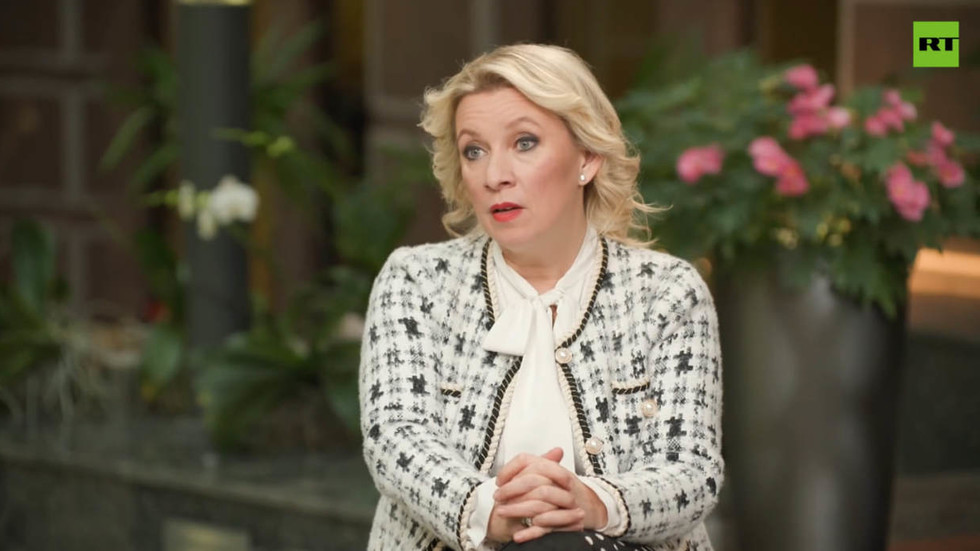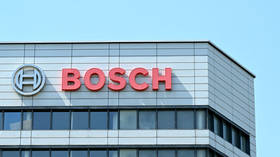Foreign Ministry spokeswoman Maria Zakharova has said Berlin has undermined its industrial sector by decoupling from Russian energy
By caving in to US pressure and cutting off energy supplies from Russia, Germany has shot itself in the foot economically, Russian Foreign Ministry spokeswoman Maria Zakharova has claimed.
The German economy has been steadily contracting in recent years; the only Group of Seven economy to shrink in 2023.
In an interview with the newly-launched RT Balkan TV channel published on Saturday, Zakharova said: “A couple of years ago, Germany was registering fantastic [economic] growth figures, and all the factors were in favor of Germany developing virtually by leaps and bounds.”
According to the Russian diplomat, “cooperation with our country was one of the factors for Germany’s economic growth.”
However, “because of US influence, cooperation was severed by Germany, the energy source was blocked,” Zakharova stated, citing the destruction of the Nord Stream gas pipelines as a result of underwater explosions in September 2022.”
“The loss of [Berlin’s] ability to pursue a nationally-oriented policy” has resulted in the country’s economy “crumbling,” the official claimed. As a result, “German companies have begun relocating to other countries, where it’s more viable for them to do business,” Zakharova concluded.
Her assessment was echoed by Bloomberg’s analysis last week, with the media outlet warning that Germany’s export-driven industry is now facing an irreversible decline amid a second year of zero growth. The article cited years of “poor” government decisions as well as the loss of cheap Russian energy.
Among the hardest-hit sectors is Germany’s famed automotive industry, with such giants as Volkswagen and Mercedes-Benz bearing the brunt, according to Bloomberg.
Earlier this month, German Economy Minister Robert Habeck acknowledged that “our business model is really cornered.” He cited Berlin’s failure to make sufficient investments in its infrastructure, tax system and workforce skills over the last several years.
At around the same time, Germany’s central bank slashed the country’s growth outlook from a previously projected 0.3% expansion to a 0.2% contraction.
“The German economy is set to stagnate in the winter half-year 2024-25 and will only begin to make a slow recovery over the course of 2025,” it stated. Bundesbank President Joachim Nagel warned of “structural problems.”
Should US President-elect Donald Trump make good on his threat to slap sweeping tariffs on European goods, Germany’s GDP could shed between 0.2 and 0.6 percentage points next year, the institution also predicted.



